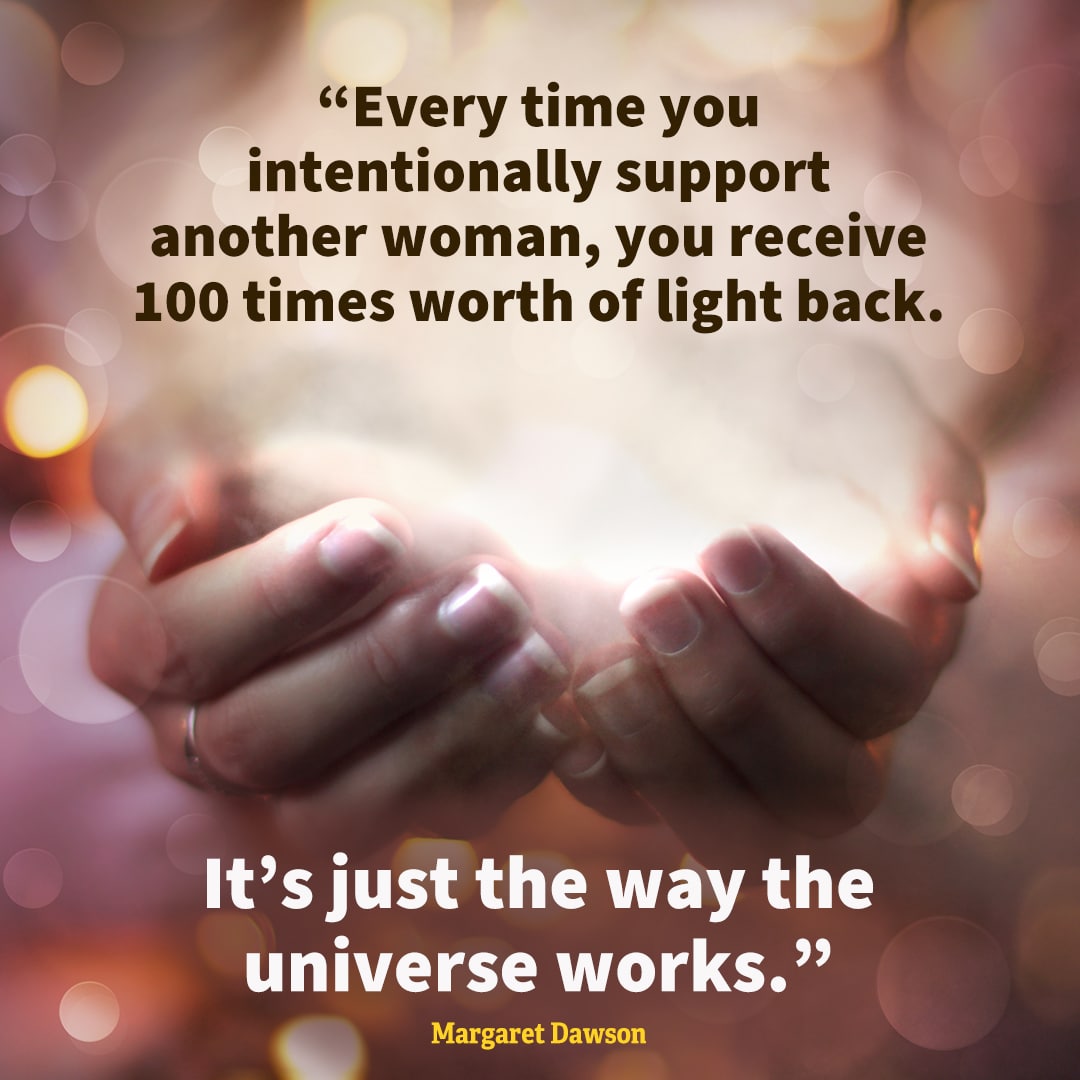
by Margaret Dawson | Jan 25, 2020 | Women Empowerment
I don’t like to use the word Sexism
As a woman executive in tech, I try not to get sucked into stories of the boy’s club, misogynistic or sexist remarks, or how women have to work twice as hard to be taken seriously. I know sexism and all of these issues exist and are true, but most days, I just focus on my job and try to make a positive impact.
If I was to focus on the challenges women in this and other industries face every day, I would spend too much energy on being angry. Instead, I channel that energy to empowering and supporting other women (and men), and validating other leaders who do the same.
But recently, I experienced an encounter that was so blatantly sexist and demoralizing that I cannot stop thinking about it. It had been a long time since I was spoken to as if I was not qualified, as if I was not “worthy”. I am 100% positive I was spoken to differently because I am a woman.
Based on my life’s experiences, there is no way this male executive would have treated another male executive the same way. He questioned my capabilities and my experience, even though my team informed him of my title and role; and my experience.
I thought I’d share my experience to illustrate the sometimes daily shit women in tech have to deal with that is just par for the course. And, we are supposed to just let it all roll off our backs and get over it.
I have left out company and individual names for privacy, and I am sharing the experience as best as I can remember.
It’s great to be King
I get on the conference call.
The goal is to hear from the SVP of sales for this organization, a partner company of ours. They are planning their big annual conference, and my team recommended I do a keynote at the event. The partner company originally wanted our CEO, but when he was not available, my name was recommended.
My colleague, let’s call her Mary, joins the call, along with another business development manager, who I will call Joe.
We chit chat about the weather as we wait for the other executive to join the call.
Soon, the partner exec, who I will call Mark, comes on as we are still talking about the cold weather in Boston.
“Thank you so much for taking time to talk to us today, Mark. We have on the call Margaret Dawson, an executive with our partner, who we are recommending do the keynote at our event in a couple of months,” Joe says.
“Nice to meet you,” says Mark.
“Mutual,” I say. “Looking forward to working with you on this.”
“So, do we have the presentation to go through?” Mark asks. “I thought that was the plan, was it not, Joe?” he inquires, in a tone I am trying to not interpret as annoyed or impatient, since we’ve barely started the meeting.
Joe then explains that we needed to switch speakers, so we were going to use this time for him to get to know me, the new speaker.
“Actually,” I chime in, “it would be great to hear from you, Mark, about your expectations, and then I’m happy to go through a couple of ideas we’ve had and abstracts I’ve sent the team.” I am hoping from my initial gut read that this is a man who likes to hear himself speak.
This man probably thinks he’s being helpful, not sexist
Turns out, I am right. The mansplaining begins.
Mark goes through a long explanation of their event, his goals, and the expectations of this “prime time” keynote. A couple of times, I try to interject a comment or question, but I am not successful.
“It would be great if you could specifically reference our ‘Cloud Center of Excellence,’ he emphasizes. “Write that down,” he says, slowly articulating each word as he repeats it: “Cloud Center of Excellence. That’s a very specific thing we have.”
Did he just say “write that down”? I ask myself. WTF?
“I think the content we are thinking about fits very well. I’d open by talking about what I’m seeing from our customers around the world and some common themes and challenges,” I start to explain.
“Before you go through that, could you tell me a little bit about yourself, Margaret?” Mark asks. “What is your background? Have you done anything like this before?”
What is my background? Has there been zero briefing? They asked me to do this presentation. My mind is spinning with potential answers to this. None of which I say.
“Sure,” I say, holding back my annoyance. “I have been in the IT industry for nearly 30 years, working across both the corporate and technology sides of the business, and have been VP in our products and technology organization for the last four years. Part of my job now and for years prior involved working with customers and partners around the world, and I’ve spoken at leading industry shows around the globe about cloud computing, big data, digital transformation, hybrid cloud architecture, etc.”
“I see,” says Mark. “Could you tell me a bit more about how you think you would approach this keynote, as this is very important to us, and quite a star spot on our main stage.”
Please let me prove my worth, your highness
My colleague cuts in, saving me.
“Margaret is one of our senior executives and most sought-after speakers,” she states.
“I understand,” says Mark. “This is just a very important event, and I want to make sure Margaret understands what is needed. Margaret, do you have a couple presentations you could show me, or perhaps a video of you speaking at an event?”
“Yes, of course,” I reply. “But I have to say, I didn’t realize this was going to be a job interview. If I’m not the right fit or style, then we should find someone more appropriate. No hard feelings.” I am about to lose my shit.
This time Joe steps in.
“Mark, we have a couple of presentations Margaret sent to us that I can forward you,” Joe says.
“I see. That would have been helpful to see before this meeting,” Mark says.
“How about this,” I suggest: “Why don’t you review the abstracts and presentations, and watch a couple of videos, and then you can let me know?”
“Could you have a draft presentation done by next week for us to review?” Mark asks, as if nothing I’ve just said went into his head.
“No,” I retort. “I can’t start working on this and creating a tailored presentation, which of course I would do, for a couple of weeks.”
“Margaret is very busy with our next fiscal year planning, as we are in our Q4 right now,” Mary says, trying to save the conversation again.
“I see,” says Mark.
No, I don’t think you do “see,” Mark, I think.
I’m done trying to prove myself
“Well, it was great to meet you, Mark, and I look forward to helping make this an incredibly successful event,” I say as graciously as possible. “I need to drop for another meeting.”
It was the top of the hour, and I did have another meeting. However, I needed to drop before I started screaming.
A few hours later, we receive an email from Mark that says, “Margaret, I watched a couple videos, and you are a very good speaker. I look forward to your keynote.”
I laugh out loud when I read this, calling Mary.
“Thank goodness Mark thinks I’m good enough,” I say snidely.
“I need a drink,” Mary replies. “I cannot get over this display of blatant sexism.”
“Me, too,” I say. “Maybe two. Oh my god.”

Our femininity and competency are our greatest power
I am not one to toot my own horn, but there are a few areas I feel confident in my abilities. One of them is public speaking, including presentations to a technical audience. This is my passion and my joy, and it shows.
Part of me wants to go back to this organization and tell them “no” – to not give them the opportunity to have me engage with their audience. However, I know I will not. I am above it. This isn’t the first time I’ve overcome people assuming I am not capable of handling a keynote on a technical topic or to a thousand people.
By doing this keynote, and doing well, I will hopefully show one more time that it doesn’t matter that I’m a woman. I will take a stand for all women and other minority populations in technology.
The audience will not care I am a woman, I tell myself. They will care that I am competent, engaging, funny and helpful. They will walk away with a new idea or a fresh perspective. Or perhaps just a good feeling because they were not bored out of their minds.
But because of my experience with this sexist man and this company, I will make a point that I am a woman in technology. I will walk on stage in a shorter than usual skirt and perhaps higher than usual heels. I will stand tall in my nearly six-foot height.
And I will shine.

by Margaret Dawson | Jul 31, 2019 | Women Empowerment
We are all laughing. It’s somewhat nervous laughter, as I just answered the question nearly every woman asks me during these women in tech Q&A sessions.
“What can I do when I bring up an idea at a meeting and no one pays attention, and then a man brings up the same idea 5 minutes later, and everyone thinks it’s brilliant?”
I answered honestly.
“Well, what I typically say is, ‘Great idea, Bob, which is why I just fucking said that.’ ”
Laughter.
“But I don’t expect you to be me or act like me,” I add. “What every one of you can do is help each other in that situation by validating the other woman for her idea.”
For example, you can say: “Great idea, Bob. I really like the idea you just mentioned, and I also really liked the idea when Mary explained it five minutes ago. Maybe the two of you could work on it together.”
Nods and some giggles float around the room.
I am sitting on a high stool in front of some 40 women, who are seated on folding chairs in a breakout room. Many of these women have never met each other before today, even though they work in the same office and have a monthly women’s breakfast.
The women at this large, regional telecommunications company are typical of most women in tech groups I meet. Eager to understand how to be successful or how to navigate this world of mostly men.
Over the last two hours, we’ve talked about the daily challenges women in tech experience. But we’ve also discussed how we can do more to support each other. Or how we can at least have more meetings like this, where women feel safe to ask the hard questions.
How Can We Provide Intentional Support
“Let’s do one more question,” my long-time friend Wendy, who is hosting me, tells the group.
The women are all looking at each other as if to ask,“what now?”
“How do we keep this going?” a woman asks, putting words to everyone’s thoughts.
Great question, I think. How do we keep this going, after returning to our desks to answer the hundreds of emails piling up? Or when we’re fighting office politics or racing to meet a project deadline? How do we think about intentional support as we’re packing up our briefcases and leaving the office to pick up the kids from childcare?
I put the question back out to the group.
“What could each of you do to provide intentional support of each other?” I ask.
Silence. Forty sets of eyes looking down or away.
Why is it so scary for women to declare intentional support? I wonder.
Brainstorming, I say, “What if you did something simple, like give each other a ‘high five’ when you pass each other in the hallway?”
The High Five Experiment
And so it began.
From that moment, whenever one of the women passed another woman, they gave a high five.
Other women who were not at the event were told about the initiative and joined in.
Within three days, the men started asking questions. “Why are you all high fiving?”
“Just to show intentional support for each other,” the women responded.
“Well maybe we want to support each other, too,” the men said.
“Go for it,” the women declared.
And they did. The men started giving high fives to each other, too.
Soon, everyone was high fiving.
It shifted the morale. Not just for women, but for everyone. Such a simple act. A validation. A touch. Saying I support you. I see you. And I celebrate you.
Above all, this was a needed shift in an office suffering from low morale due to constant reorganizations and corporate mandates.
Over time, the high fives slowed down and then stopped. People changed jobs and offices. More layoffs occurred.
But for a brief time, people participated in an act of intentional support.
In my earlier blog post on 8 Actions Women Can Take Now to Empower Other Women, declaring intentional support is my first and foremost action.
If something as simple as a high five can change lives and culture, what else could we do?
Validate Everyone in Meetings
The question the women asked about what to do during a meeting when your idea is ignored until a man brings it up is a recurring challenge to many women AND many men. In talking to all types of groups, I’ve learned it’s not so much a gender experience but rather a personality issue. Strong, aggressive personality types overpower and talk over quieter, less assertive personalities.
Meetings are a wonderful place to show intentional support. Take the effort and time to acknowledge everyone’s comments and ideas.
A simple validation does wonders for someone’s self confidence and willingness to share ideas in the future.
For example, when you hear someone express an idea or comment, say something like, “Let’s capture that idea in our action items.” Or, “Thank you, great idea.”
If a person is interrupted, you can be his or her champion. “I’m sorry, Bob, I think you interrupted Mary, and I’d love to hear what she was going to say.”
Polite but clear.
Compliment Another Woman
Have you ever noticed how you feel when someone tells you, “You look great!” Or “I love that color on you.” or “Great job today in the quarterly business review. You rocked it.”
You stand up a little taller. You end up smiling a bit more.
What if you made a point of complimenting other people out loud when you notice something about them? I try to make a point of this, because I have seen the positive energy it creates. I do it to complete strangers, and I’ve never had anyone not react with absolute joy.
In a hotel elevator, I noticed a woman’s outfit. Beige linen pants, navy blouse, and a scarf that blended the beige, navy and tones of green all together. She looked lovely. So I told her: “You look stunning in that outfit – it just looks so beautiful.”
She looked down, and for a moment was taken aback. But then she smiled. “Thank you.” A smile remained on her face as we walked off the elevator.
Maybe we shouldn’t need external validation, but it makes everyone happy to GIVE validation to others. And that is another simple show of intentional support.
Call Out Bad Behavior and Bullying

When my youngest boys were in elementary school, they went to afternoon childcare at their school. Over time, these some thirty children developed a kind of family behavior. They were all children of working parents (we’ll talk about working mom guilt another day). Regardless of race, socioeconomic status, or gender – they bonded.
One of the girls in childcare had Down syndrome and some emotional issues. The other children watched and protected her. One day, an older boy started bullying her on the playground during morning recess, pushing her to the ground and calling her stupid. Seeing this, the childcare children came running from all corners of the playground. They helped the girl up and stood between her and the bully. One of the kids went to get the principal.
Even though they were outside the cocoon of the childcare environment, these children stood up for their friend. That bully did not bother this little girl again.
These children could have stayed in the safety of their classmates and recess friends. How often do you witness bad behavior among colleagues or relatives and say nothing?
Standing up for someone different or victimized always brings a risk of being teased or bullied yourself. But that is exactly what we must do.
If you see someone making inappropriate or sexual comments about another person, call it out. Report it to human resources if needed.
If you are in a meeting and someone constantly interrupting or criticizing someone, call it out. Ask them to stop until they can provide comments in a calm, positive way.
Bullying happens in the workplace. Unfortunately, I’ve seen women bully other women. Don’t allow that on your watch.
Other Ways to Show Intentional Support
These are just a few ideas I have seen work.
What ideas do you have? What have you seen work in small or big ways?
I’d love to hear your ideas and suggestions.

by Margaret Dawson | May 1, 2019 | Digital Transformation, Women Empowerment
It’s so easy for us to point fingers at men. If only there wasn’t sexism in the world. If only men would support women leaders more. But are women empowering women?
I absolutely agree there needs to be change in the world by everyone. I just find it hard to blame only the men. There is so much women can do for other women that we more times than not, we simply do not. Even though research now suggests women who support other women are more successful!
I often say that until all women are intentionally supporting other women, we have no right to blame others. This is because we are often our own worst enemy. Women who do make it in business and leadership often don’t support women trying to move up the ladder. I have worked for women leaders who surround themselves with white men. Diversity and inclusion is not on their agenda.
Have you ever seen a woman directly criticize or play down another woman’s light? If you are like most women I’ve asked this question, your answer is, “yes”.
INTENTIONAL SUPPORT DRIVES REAL CHANGE
Why is it important that we intentionally support each other? Because it’s the only way we will see real change.
When have women changed history? When women from different places and backgrounds banded together and gave each other unconditional support. That is how women’s suffrage was won. That is how we started to get more equality in pay.
But as we all know, we aren’t there yet.
At a recent conference, a successful woman scientist disagreed with my stance, saying that the only way to achieve change is by convincing the men in charge to push through change. If we had waited for the patriarchal system to do the right thing, we would see very few of the improvements we do have today. Systems only change when they realize opposition will not give up and will not stop fighting for a greater good.
How do we provide intentional support?
EIGHT ACTIONS WE CAN START DOING NOW
- Declare intentional support: Women must intentionally support each other. Not just talk the talk, but truly walk the walk. The first way to give intentionally support is to say you will. Simple declarations made publicly often turn into action.
- Mentor and coach other women: I feel like this is just a moral obligation for all of us that are in any type of leadership position. Girls and other women look up to you for guidance. So give it!
- Hire & promote more women: Often, when I say this out-loud, I am greeted with a bit of a shock. Wait a minute, we can’t intentionally hire more women – that would be reverse sexism, wouldn’t it? Uh, no. Don’t apologize for intentionally seeking out and hiring more women. Just do it. We have a pipeline issue, and the only way it will change is by filling that pipeline with women.
- Level the playing field: Don’t wait for permission. I have often assumed leadership of new teams and find that some people, usually women, are strikingly underpaid for their level and position. The first thing I do is ensure that all my equal levels and performers are getting paid equitably. That is just one way we can level the playing field.
- Encourage our daughters (and sons!) to take risks: Way too often I have heard or seen parents giving their girls loving advice to not take the hard math class or not to do something too dangerous or not to stray too far from their social network. While I believe this is always done with best intentions, we need to push our children of all genders to stretch themselves, reach for the stars, and believe they can do anything they set their heart to.
- Be nice to that “different” girl: We all know who this is. For many of you, like for me, it was you. The girl that was awkward, or geeky, or smart, or just, different from the popular girls. This follows us into adulthood. And while many of us grew out of our awkward stage or learned to conform so we didn’t stand out, we often still isolate or even criticize those women who take a different path. What if we accepted them 100 percent and even intentionally helped them? What amazing things could they do?
- Call out bad behavior by men and women: So often, when sexist behavior or bullying does occur, no one says anything. We need to stand up for each other. The most frequent situation women always tell me about is in meetings, where they will be talked over or their ideas will be ignored until expressed again by a man. When you see bad behavior, call it out in a mature, calm way. But don’t just let it go.
- Shine your light on others: We all have an amazing ability to shine, but too often we shine our light on ourselves to get attention or validation. What if we focused on shining the spotlight on others? This involves intentionally calling out a woman or man when they achieve something good or amazing. Put yourself second. Find ways to congratulate and promote the good works of others.
THE HARD WORK IS WORTH IT
 I realize I’m making this sound easy, and it’s not always. In fact, I have experienced incredible resistance to these simple acts. People will fight you. People will say you are being sexist by focusing on hiring, promoting, and giving raises to women. But I have never done these things for people who aren’t deserving.
I realize I’m making this sound easy, and it’s not always. In fact, I have experienced incredible resistance to these simple acts. People will fight you. People will say you are being sexist by focusing on hiring, promoting, and giving raises to women. But I have never done these things for people who aren’t deserving.
This isn’t about rewarding people who aren’t qualified. This is about making it right and equal for everyone.It’s also about making sure we are not actually doing more harm than good for other women.
It is also hard work. It means taking time, and sometimes, a lot of time, working with those women who haven’t had an equal chance. Mentoring, coaching, encouraging, pushing, stretching them. And it’s worth it.
Every time you intentionally support another woman, you receive 100 times worth of light back. It’s just the way the universe works.
You can change lives, one woman at a time.







